Do you remember Erica, the PlayStation exclusive revival of the classic FMV gaming genre that was announced back in 2017 and then barely heard from since? Well, it was suddenly released earlier this week at Gamescom, catching many by surprise. What may even more surprising though, is just how good it is.
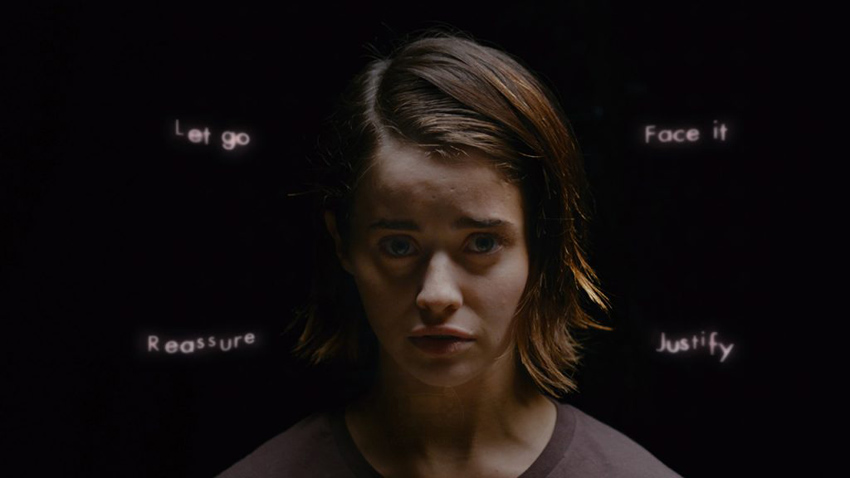
There was a time decades ago when FMV games like this – featuring real-world actors instead of digital creations acting out scenes like a movie – were all the rage. None of those old FMV games were quite like this though. A fact that the far too many hours of my teenage youth spent directing the actions of B-list actors through C-list plots directed by D-list filmmakers can attest to. Erica, on the other hand, is a highly-polished and gripping yarn of murder, mystery, and the occult which could easily have been a successful episode in some Black Mirror-styled anthology series on TV.
Billed as an interactive thriller, Erica doesn’t just blur but nearly erases the line between video game and movie/TV series. Boasting a control scheme that’s inspired in its simplicity, you use nothing but the PS4 controller’s touchpad or the screen of your smartphone (you need to install an app for this) to select dialogue choices, choose paths to take and locations to visit, examine/interact with objects, and more. Simple gesture commands will see you perform these mundane tasks, as well as more esoteric actions like wiping away a present scene to reveal past events. You never directly control the second-by-second actions of the characters on screen though (well, not quite), but rather guide the game’s direction as you try to unravel a psyche-shredding mystery.
This particular whodunnit spirals around the titular Erica Mason (played by British actress Holly Earl), whose doctor father was brutally murdered in bizarre occult-ish circumstances when she was a child, the young girl being the one to find her father’s gory corpse with the killer still in the room. The trauma proved too much for her fragile mind though, fuzzing the details of what truly happened and leaving her with years of psychological turmoil.
Now a troubled twenty-something, Erica lives alone in her dingy apartment, racked by nightmares both of the sleeping and waking variety, centred around the mysterious symbol raggedly carved into her father’s blood-drenched torso. When a violent new murder with clear links to her father’s death rips off the scabs of old mental wounds, Erica is moved by police to Delphi House – the mental health care facility founded by her father, and the same place he met and married her late mother – for her own safety. But all is not right in Delphi House, it’s halls filled with whispered secrets and half-glimpsed horrors.
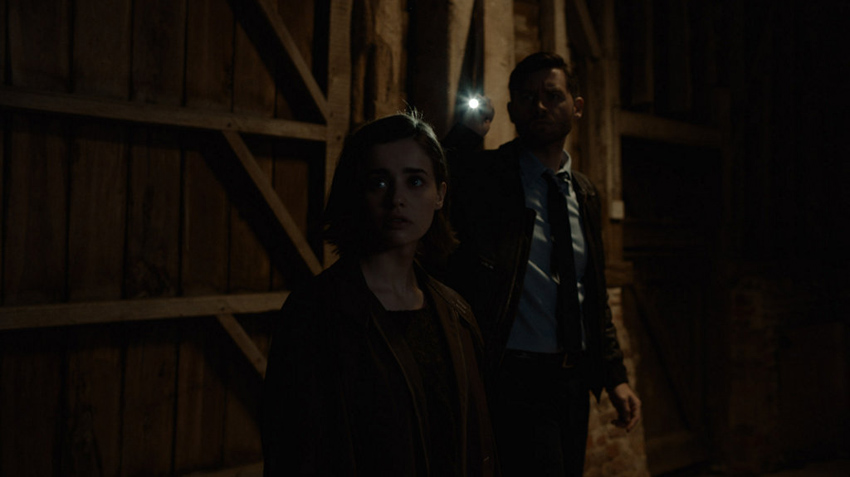
As you follow on-screen gestural prompts to move Erica from scene to scene in this story, your every action has consequences, resulting in a branching fractal of a narrative leading to multiple endings and dozens of ways to get to them. Repeated playthroughs are not just recommended but actually insisted upon as no single path contains all the necessary details to fill in exactly what is going on. I’ve had three playthroughs, all spooling out vastly different threads as I made different choices, and there are still several plot points I am yet to puzzle out.
But this is also where some of Erica’s problems lie. With no way to restart from a specific chapter, if you want to see how certain late-game choices result in different endings, you need to do it all over again from the beginning. With a single playthrough taking only around two hours to complete, this isn’t the biggest time commitment ever, but it will put off some players from getting lost in the warren of narrative causality the game offers. And with a few plot reveals locked into certain scenes, some character actions won’t make complete sense if your playthroughs hadn’t already taken you down those paths.
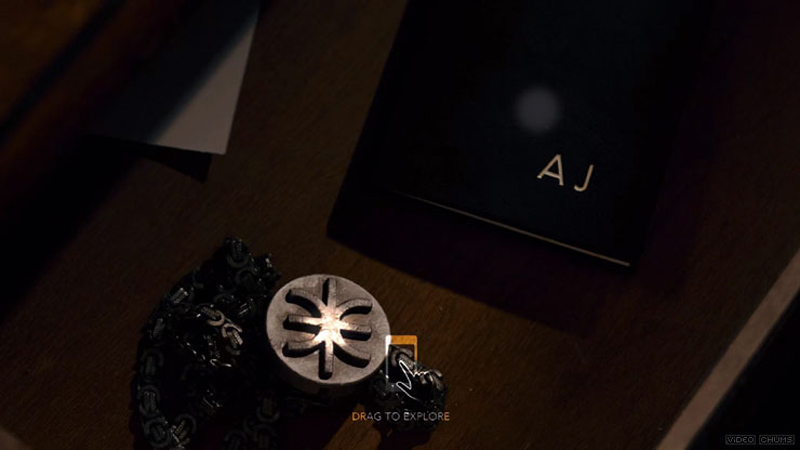
The game’s interactive control scheme also needs a smidgen of tweaking. A smartphone, with its larger screen real estate and ability to display onscreen command cues, is clearly the superior way of playing Erica. But even using this method, there are moments where things don’t track quite correctly, with multiple swipes being required for an action that should be done in a single fluid movement. And while there are some moments where the game thinks outside the box in terms of its control scheme – or even just makes those choices time-sensitive to add additional gameplay tension – they’re a tad bit sparse for my liking.
The same can be said of the game’s various environs, which look great but are rarely populated by more than three characters (a technical holdover from the genre’s roots) leading to some locations feeling very video game-y instead of the cinematic experience the creators are aiming for. However, it’s a testament to the riveting storytelling from Erica’s team of writers and directors that you mostly overlook these issues in the moment. There’s nothing of the outright pants-soiling terror variety going on here, but there’s a palpable atmosphere of foreboding dread created through ritualistic visuals, fantastic audio design, and Austin Wintory’s moody score to keep you glued as events unfold.
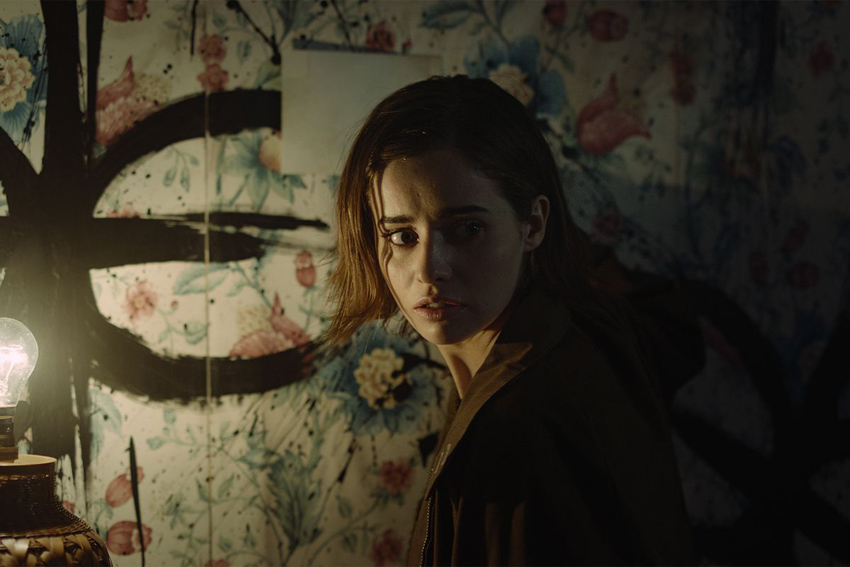
Credit should also be given to the game’s cast who do a fantastic job in selling it all. As good as video game graphics have become over the years, nothing beats the subtle micro-expressions of flesh and blood actors to evoke an emotional reaction from an audience. Of course, that is all moot if your cast has the thespian range of a pile of old laundry, which traditionally was the case with these games. That’s luckily not an issue here, with Holly Earl leading from the front as the eponymous Erica, carrying affairs with highly convincing pathos. Admittedly, some characters aren’t as well-realized (Duncan Casey’s police officer Blake comes to mind) but other co-stars like Sasha Frost and Chelsea Edge as Delphi House patients Hannah and Tobi respectively give very solid performances.
Although paced rather robustly for this type of thing, for people who want the euphoria of button-mashing explosive action, Erica will not be for them. But if you’re of the sort who loves to watch these types of gothic stories unfurl in movies or TV series and especially like to scream at the characters on-screen about how they should rather do this action or not venture down that corridor, then this will be right in your wheelhouse. And coming in at just R159 on PSN, it’s almost cheaper than actually going to the movies.
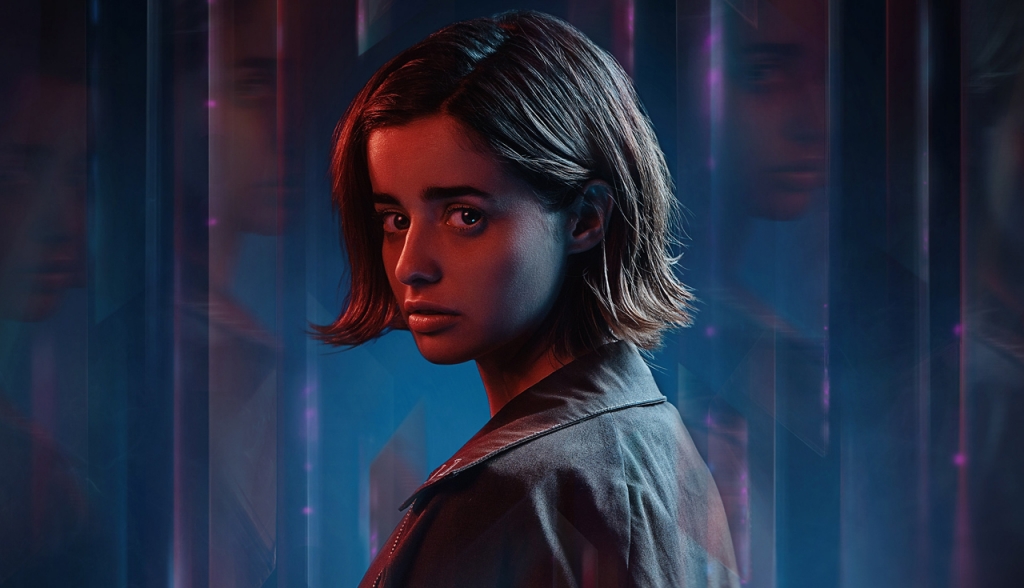
Last Updated: August 23, 2019
| Erica | |
|
Although it has its flaws, Erica is still a great revival of the old FMV genre, further erasing the line between video game and movie. An inspired control scheme, an engrossing multi-branched narrative that allows for multiple replays, and top-notch acting and directing - usually the pitfalls of the classic examples of the genre - make for a thrilling interactive experience.
|
|
|---|---|
| Erica was reviewed on PlayStation 4 | |
|
69 /
100
| |






















Admiral Chief Umbra
August 23, 2019 at 13:36
Header image is very Strange, among other Things
Kervyn Cloete
August 23, 2019 at 15:20
https://media1.giphy.com/media/REGrSZ2B8jt9m/giphy.gif
Admiral Chief Umbra
August 23, 2019 at 13:36
Wing Commander Prophesy on all those CDs…
Kervyn Cloete
August 23, 2019 at 15:19
I remember Phantasmagoria shipped on 7 CDs and Gabriel Knight II: The Beast Within shipped on 6 CDs.
Yani Yamuchi
September 8, 2019 at 21:23
Great “game”. Its good to see gaming and film mediums edging closer together.